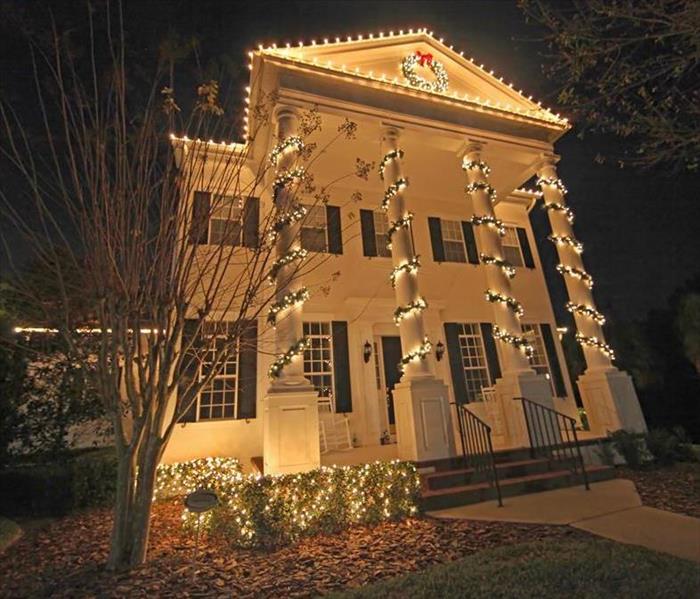Christmas lights safety tips
11/1/2018 (Permalink)
A MOV house lit up with Christmas lights is a beautiful sight to behold. The Mid Ohio Valley is rich with historical homes from early 1800's. But stringing lights across your roof and around your home can be a real safety hazard if you're not careful. So before you flip the switch to dazzle friends and family with your spectacular light show, take a few moments to run through a quick safety checklist. You can find them online.
? Before you string up a single strand of lights, cautiously check them for cracked cords, frayed ends or loose connections.
? The combination of shorts in electrical lights and a tinder-dry tree can be deadly. There are 250 Christmas tree fires and 14 related deaths each year, according to the U.S. Fire Administration. So always keep your tree well-watered. Not only will it stay fresh and green, but it might also keep your house from burning down.
? Modern lights have fused plugs, preventing sparks in case of a short circuit. Toss out old strands of lights that don't have fuses and get a set of newer, safer lights.
? If bulbs have burned out, replace them right away, but make sure you use the correct wattage bulbs.
? Water and debris can find its way into outdoor sockets, so always make sure outdoor lights are plugged into a ground fault circuit interrupter outlet to reduce the risk of shorts and shocks.
? Keep an eye on extension cords, as they can occasionally overheat. Just touch-test the cord. If it's hot, unplug it.
? Don't use tacks, nails or screws to hang lights, They might pierce the cable and become electrified. Try using insulated hooks instead.
? When running extension cords along the ground, make sure to elevate plugs and connectors with a brick to keep snow, water and debris out of the connections.
? Tape down any ground-level extensions cords to prevent people from tripping over them.
? Check to make sure lights have been rated by a testing laboratory. You can see a list of federally recognized labs on the Occupational Safety & Health Administration's website.
? Not all lights are rated for outdoor use. Indoor lights often have thinner insulation, which can become cracked and damaged when exposed to the elements outdoors. So make sure the ones you string up on the house belong out there.
? Never leave Christmas lights running when you go to bed at night or when you leave the house.
? When you put your lights back into storage after the holidays, be sure to put them in a well-sealed container to prevent possible water damage and to block hungry rodents looking to turn the cords into lunch. Our final advice? Be careful with ladders.





 24/7 Emergency Service
24/7 Emergency Service
